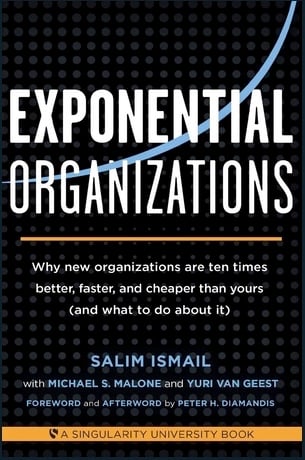Australian banks and financial institutions are losing the faith of the consumer. It isn’t a problem of regulation or profit alone. It’s a problem of public perception.
Insight: They are going to need to determine how they’re going to handle the findings of the Financial Services Royal Commission and how they’re going to renew customer faith.
Data: With over 10,000 complaints submitted by consumers for inquiry by the Financial Services Royal Commission, there’s a problem within the Australian finance industry that’s impossible to ignore. (Deloitte)
Key Action Point: One way to resolve a problem is to re-frame it. Banks clearly can’t figure out where they keep going wrong. So in this article, we explore how an entertainer and image specialist would have handled the banking controversy, answering to the Financial Services Royal Commission, and rebuilding and scaling from within.
The Financial Services Royal Commission Releases Reports regarding Banking Misconduct
On 4 February 2019, the Financial Services Royal Commission finished a two-year inquiry into the banking and finance sector of Australia.
Ultimately, it showed that banks and financial institutions were unable to keep up with the changing landscape of the sector, failing to respond to emerging market pressures and consumer needs.
Even worse, it was found to have engaged in significant misconduct, misleading consumers and potentially damaging the economy.
Yet what the banks have isn’t a problem of regulation or profit alone. It’s a problem of public perception.
Banking institutions are under fire for not putting customers first — for not appreciating them and, in many cases, committing fraud against them. So when considering how the banks and financial institutions should respond to the latest reports, it’s important to understand how a public relations expert would handle the issue.
Let’s take a look at what Madonna, one of the most bombastic public figured in history, would do if she was experiencing this type of controversy. While modern business leaders have much to learn from strategic thinkers like her, these insights should be taken with a grain of salt and applied according to your specific circumstances today.
How Madonna Would Deal with the Financial Services Royal Commission
Presently, millions of dollars are being pumped into increased regulation of the banking and financial institute, and issues of misconduct are still being explored.
Yet apart from any fines, penalties, or new levels of regulatory compliance, banks and financial institutions are really exploring a public relations crisis. To win over the trust of customers, banks need to be able to radically change the way that they are operating.
Here are six ways in which Madonna would likely deal with such a challenge.
1. Keep Abreast of What’s Current
Madonna didn’t always hit upon the right trends, but she did always follow the current trends. As a pop star, it was important that she always be conscientious of her market. She had to be constantly performing research and connecting with the culture.
Banks and other financial institutions have become entrenched and insular, with many banks being “too large to fail“ and many banks being unable to consider an industry that is swiftly changing.
Rather than adapting to what’s current, these banks have stubbornly clung to their previous operating strategies and have become steadily more disconnected from their customer base and the market that they serve.
2. Reinvent
Madonna went through many phases in her career, meant to relate to a different audience and keep her image fresh and interesting. Banks are going to need to reinvent their identity to align with their clients: they have already ended up in trouble by becoming complacent.
Consumer trust in the financial industry is at an all-time low. Customers are expecting convenience and exceptional experiences from them, and if they don’t get that from one provider, they can easily switch to another.
The challenge, therefore, is for these institutions to reflect on the following: How are we going to attract new customers? What’s the best way to retain our existing customers? More importantly, what’s our differentiating factor?
3. Push Boundaries
Madonna’s shows were memorable because she pushed the boundaries: she went beyond what was generally accepted to produce shows that were uniquely compelling and exciting.
While banks may not be able to put on an incredible stage show, they can find unique features that are going to pull in audiences and make them more likely to engage.
To a certain extent, pushing boundaries is also how they got to where they are now: pushing regulatory and compliance boundaries enabled banks to make more profit while neglecting moral and ethical issues.
Not only does a bank need to push boundaries, but it needs to push in the direction of the common good. Banks need to be willing to put customers and responsibility first, rather than pure revenue.
4. Leave Old Ideas Behind
Madonna was always willing to leave her old self behind once she found new things to explore: she wasn’t attached to any particular image or persona, and she understood that the most important element was her relationship between herself and her fans, rather than a specific image that she wanted to adhere to.
Banks cannot continue to have an antagonistic relationship with their customers, nor can they continue to exist as they have been previously within the market.
They have to be willing to leave old ideas behind. Brick-and-mortar, traditional banks are already losing ground to online-only banks, which offer higher interest rates and refuse to charge unnecessary fees.
Banks need to leave behind the traditional ideas that are holding them back from branching into a modern market.
Many old ideas, such as unnecessary fees, are already being abandoned by modern, contemporary banking solutions. Banks that are unable to leave unfriendly customer policies behind are going to find themselves falling by the wayside, as customers switch to banks that are more willing to meet their needs.
5. Expand the Brand
Madonna was always expanding her brand and finding new ways to diversify within the entertainment and music sector. The most successful pop star icons have been able to diversify into merchandise and business opportunities to weather the times when their music and shows faltered.
Banks may eventually find that they need to expand into new directions. Presently, newer banks are looking into ways that they can help consumers, from personal loans to flexible spending lines and business advice.
Newer banks are exploring a variety of products that their customers need, including help with their credit, personal loans, and starting small businesses.
If banks can find new ways to fit into their consumer’s lives, they can resist becoming unnecessary or redundant.
6. Challenge the Status Quo
Above all, Madonna was never happy remaining static. She didn’t want to just do the same thing again and again: she chased fame and success by constantly challenging the status quo. Through this, she was able to elevate herself from a star and into an icon.
To truly make a difference in any industry, whether it’s music or banking, it’s important to challenge preconceived notions.
Currently, the banking status quo is focused primarily on revenue, and it’s become an unethical and poorly regulated industry because of this. When revenue is considered to be an “at any cost“ pursuit, it’s very easy for companies to cut corners, play fast-and-loose with documentation, and (perhaps most importantly) forget about the very real individuals they are supposed to serve.
Banks need to upset the status quo, start putting the customers first, and really consider what society and customers need to improve.
Rather than simply chasing a healthier revenue picture, banks need to think more about their long-term strategies: after all, a healthy economy is more likely to produce long-term, scalable financial growth than an economy that is in shambles due to predatory lending.
Conclusion
It’s often valuable to look at things from a different point of view, especially something as pervasive as banks and financial institutions taking advantage of their customer base.
Having been powerful and entrenched for a long time, banks and financial institutions have quietly spiralled into their own standards and regulations, failing to meet the basic standards of responsibility.
Chasing profit potential and paper revenue is what has led many banks to commit fraudulent transactions, misconduct, and failures of regulatory compliance. These irresponsible actions have harmed the Australian economy and the Australian consumer.
But it can all still change — if banks and financial institutions are willing to change. At its core, a public relations issue is an issue with the company’s relationship with the customer: it’s all about rebuilding trust and reinventing yourself.
Presently, banks are seen as an enemy, with banks having a primarily antagonistic relationship with the customers that they seek to make money from. If banks are able to reframe this point of view and make themselves a friend rather than an enemy, they will be able to recover their relationships as well as build their profit potential.
Madonna, like many other powerful women, excelled at being able to read an audience, determine what they want, and adapt to it. These are all the critical, core skills that banks and financial institutions need to have now.
By looking into what Madonna would do when faced by the Financial Services Royal Commission, businesses can figure out more about how they can reinvent themselves.
















